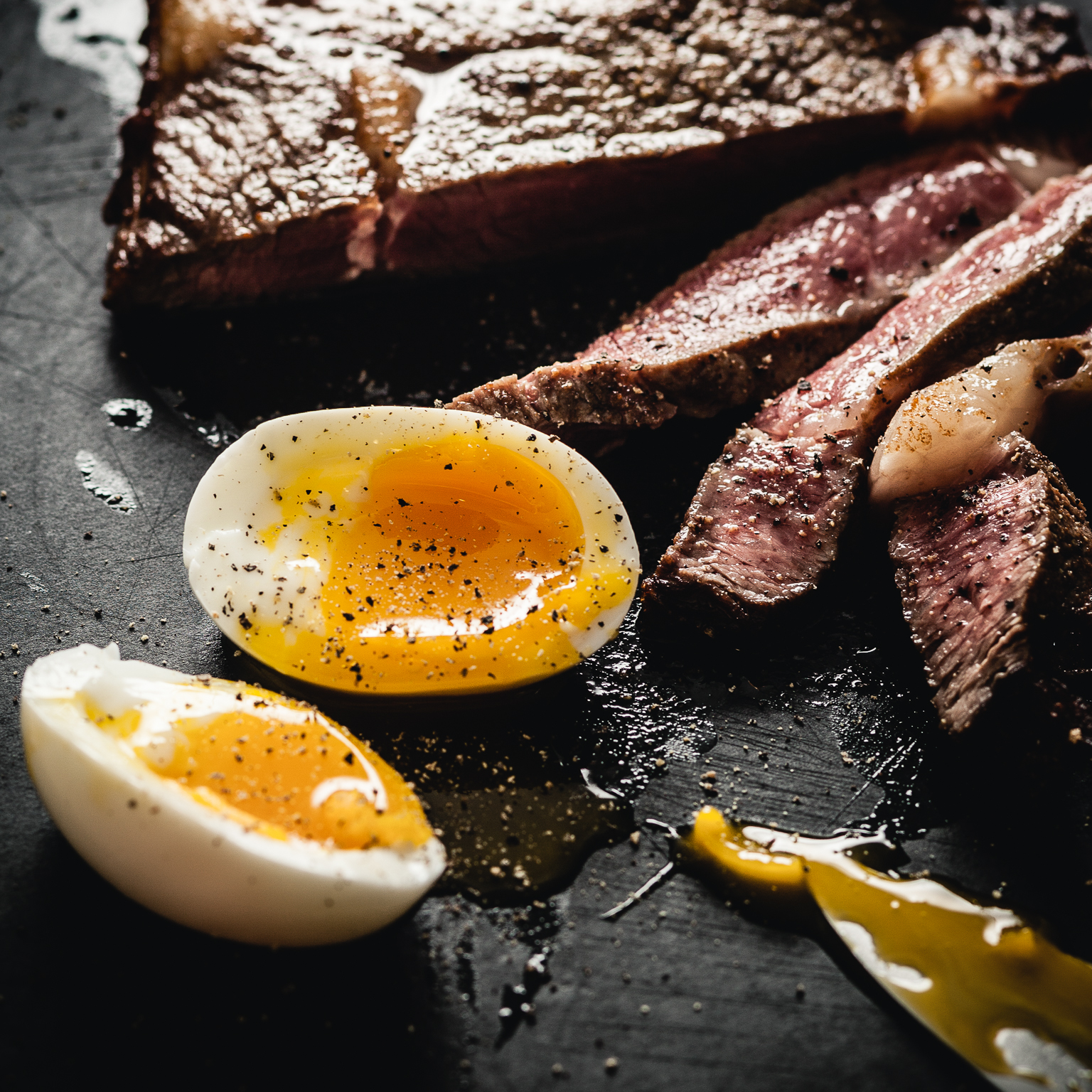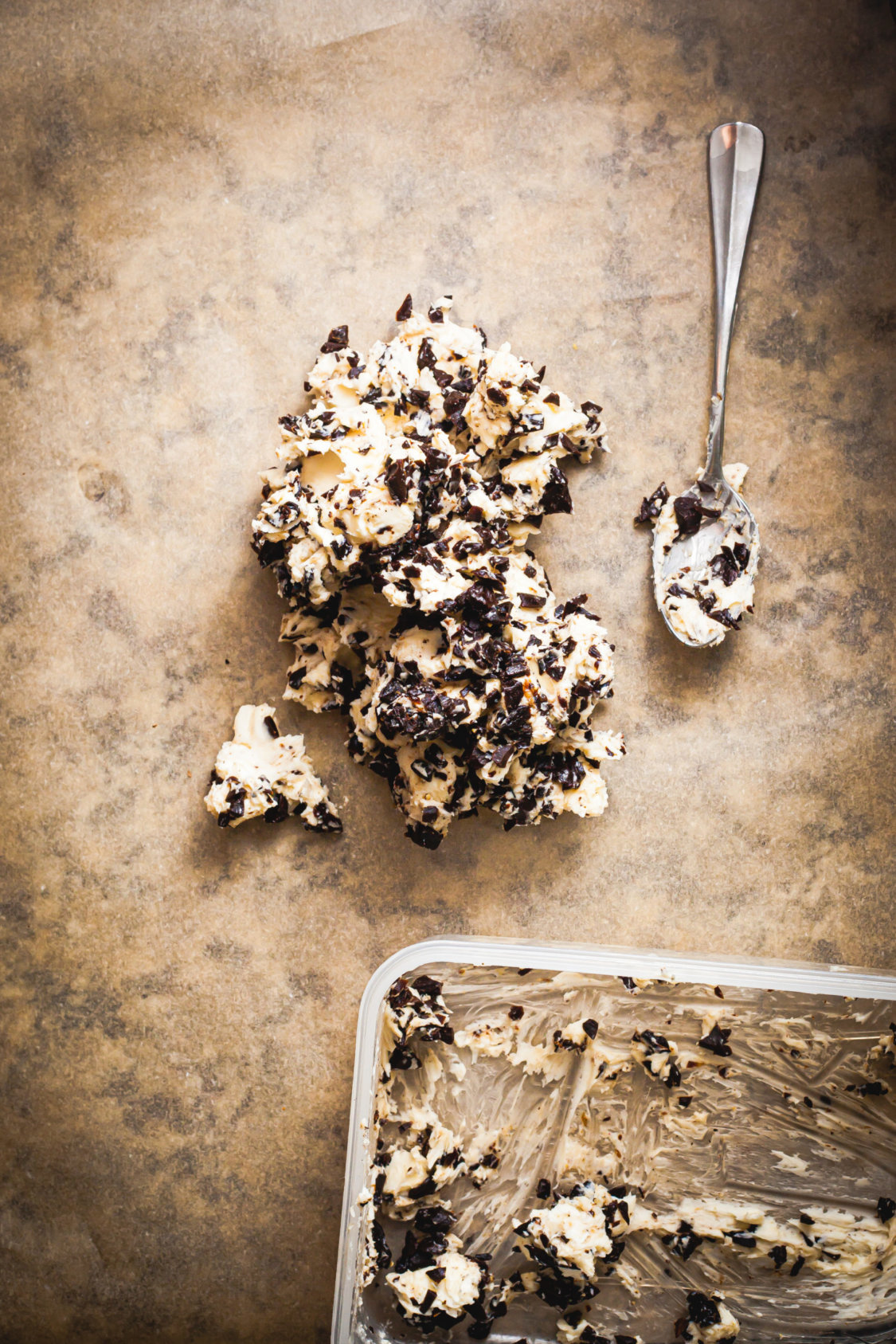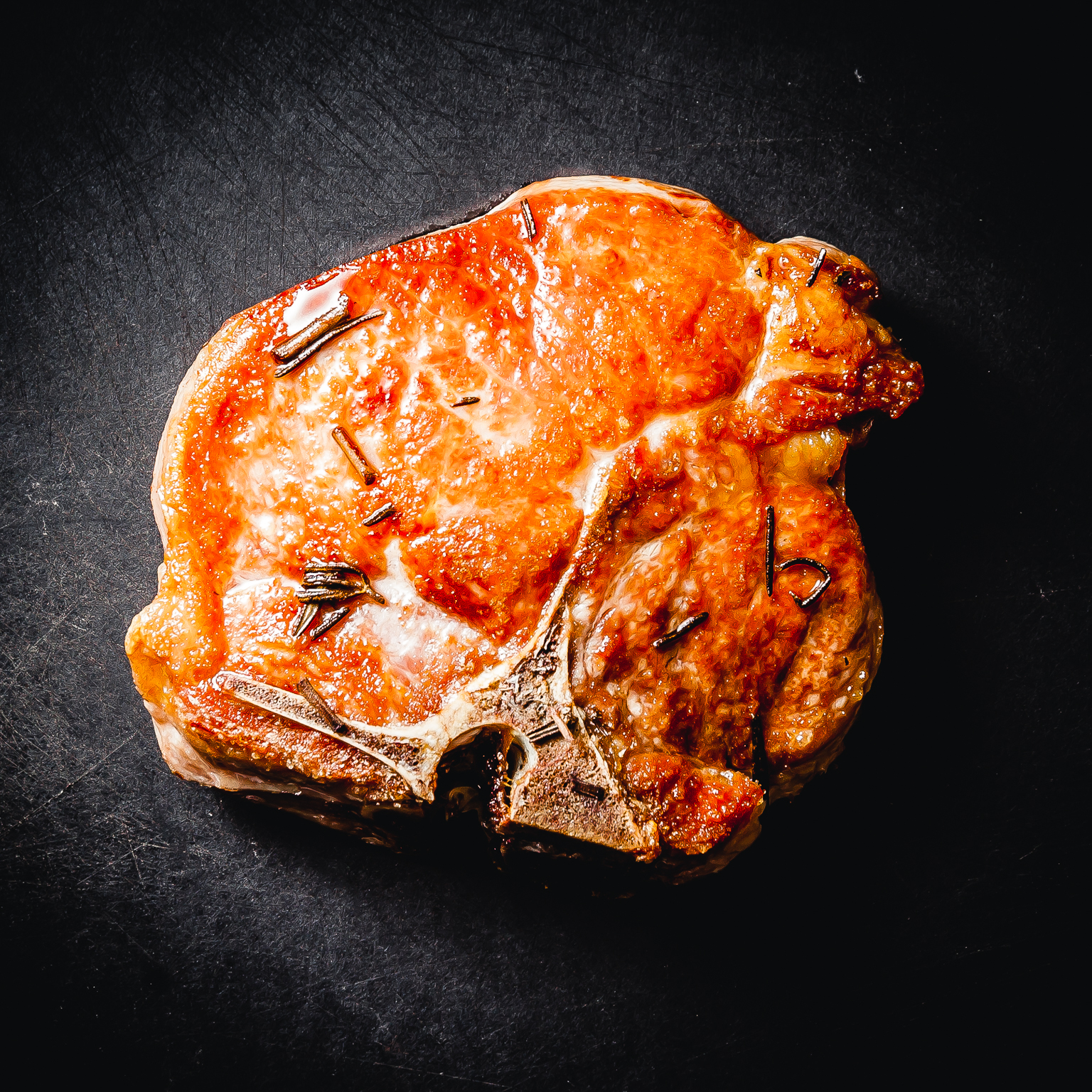Ok, this is more of a question than an informative post. I can’t remember where but recently I came across a simple cooking tip that somehow I had missed all these years. No, it’s not the one about vinegar and poaching eggs… although that one is cool too… this one could have come in handy a million times. I’m talking about using a little bit of vinegar in the boiling water when hard boiling or soft boiling eggs. The shells are supposed to come of pretty easily. Some of my friends went like “oh yeah, first thing they teach you in cooking school” Well… not all that well documented elsewhere, or is it just me?? Anyways, I’ve tried it a few times and seems to work but maybe I got lucky and got friendly egg shells. Have you tried it? I would love to know if this is pretty standard. It puzzles me that not a single cookbook I own mentions this. If this continues to work… best cooking tip ever.
In the photos… I have a fridge-cold 6 minute egg and a deep fried tenderloin steak 400F for a minute or so. Enjoy!

Wanna get more sous-vide cooking guides and cool cooking how-to’s in your mailbox? You know what needs to be done!
We never spam. You should only be getting updates when new content is posted on the site. We also respect your privacy. We don’t share your email address with anyone and you can unsubscribe anytime!





7 comments
Well, I hate t be the bearer of bad news but I think you got lucky Paul. There really is not a 100% foolproof never fail method to always make sure the egg shells come off easy. I have tried this before and it did not make much of a difference. Scientifically it makes no sense either quiet honestly. Why would a small portion of vinegar encourage the shells to loosen up? I’m assuming you are not boiling them for hours and the vinegar does nothing but come in contact with the outside of the shell (BTW, I do not put vinegar in my poaching water either…not sure where I read this but it makes no difference either in the quantities we usually add to the water).
One of the best ways I have found to get clean peeled eggs most of the time is to pressure cook them based on the recipe in Michael Rhulman’s Egg book. It works very well and results in perfectly cooked eggs if you use a timer. Most of the time though I go with The Food Lab boiled egg method, unless I want to boil like a dozen eggs and do not mind breaking out the pressure cooker.
If adding half a teaspoon of baking soda to a pot of water in which green beans are boiling (to increase the pH and make them greener as well as cook them faster), perhaps a reasonable amount of vinegar will lower the pH enough for the shell to dissolve just a little. However, you are right that won’t help to peel the egg more cleanly as the vinegar won’t reach deep enough for that. I’m going to try the pressure cooker soon!
but are we entirely sure the vinegar doesn’t reach the inner side? I don’t know Stefan… I want to give this a bit more experimentation before ruling it out. I’m in total agreement with your assessment guys but not sure why I’m thinking we might be missing something.
interesting! I’ve never heard about this pressure cooking method… see! I’m learning so much just by posting a question! I’m still not convinced the vinegar trick is just a myth but I need to evaluate it for longer. I have to say.. I did not add just a little splash.. I added a good amount… and egg shells are porous and who knows.. so maybe there’s something there… I don’t know… I really want to get to the bottom of this one. I wish I could just get a bunch of random eggs and test away. I’ve the read the food lab post which I love btw 🙂 Kenji has a book now… it’s expensive but I’m sure it’s a lot of fun. I’ll figure out something. I could brine the eggs in vinegar.. it does make the shells soft overtime…. maybe after that i could boil them and see what happens…. so many things to try hahah
Every time I think I figured out a foolproof method for easy peeling of eggs, the next damn time I try it it doesn’t work. There are just too many variables involved. You’d really have to experiment with just laid eggs from your own chickens. I know nothing about egg shell porosity, but I just don’t believe that they are. Interesting, though! I’ll try adding vinegar next time.
hahahah, exactly… I’m totally with you. I don’t think there’s any actual method that improves egg shell peeling but of all the things I’ve tried this seems to have a bit more logic to it or maybe I’m just fooling myself here. I know vinegar dissolves calcium and I know egg shells are porous. It’s extremely hard to test just because of what you said.. too many variables. I’m thinking of tinting the water and seeing if the dye has enough time to permeate the shell in those 6 minutes…. again… dyes vs vinegar… not sure it’s a fair battle… pressure cooker method might be the way hahaha